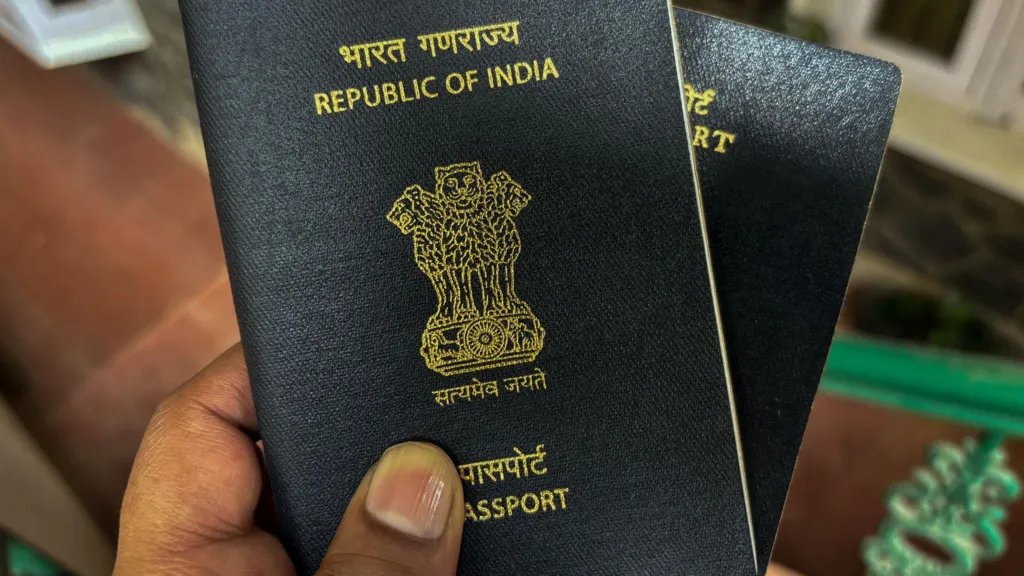MUMBAI — The Indian passport has dropped five spots in the 2025 Henley Passport Index, ranking 85th out of 199 countries — a fall that reflects not just domestic challenges but also a rapidly changing global travel landscape.
According to the latest report by Henley & Partners, India now shares its ranking with Mauritania, offering visa-free access to 57 countries — a modest improvement in absolute terms over a decade ago but far behind global competitors that have aggressively expanded their mobility partnerships.
The decline comes even as India stands as the world’s fifth-largest economy, underscoring the gap between its economic clout and diplomatic influence in global travel. Countries with much smaller economies — such as Rwanda (78th), Ghana (74th), and Azerbaijan (72nd) — now rank higher.
Global Mobility is Becoming More Competitive
Experts say India’s falling rank is not because its citizens have lost access to destinations, but because other nations are expanding their visa-free reach faster. The average number of destinations accessible without a visa has nearly doubled globally — from 58 in 2006 to 109 in 2025.
In comparison, India’s progress has been incremental. The number of visa-free destinations for Indian citizens rose from 52 in 2015 to 62 in 2024, but slipped back to 57 in 2025. During the same period, China’s passport surged from 50 to 82 visa-free destinations, propelling it upward from 94th to 60th place on the index.
Political Perception and Migration Concerns
Former diplomat Achal Malhotra, who once served as India’s ambassador to Armenia, says that political stability, immigration trends, and a country’s global image heavily influence how other nations set their visa policies.
“In the 1970s, Indians could travel visa-free to many Western countries,” Malhotra recalled. “That began changing in the 1980s with internal unrest such as the Khalistan movement and has since been compounded by ongoing political turbulence.”
He adds that migration and overstay rates also hurt India’s reputation. “Many countries are wary of illegal immigration, and India’s large diaspora and history of overstays make visa-free access harder to negotiate.”
Security and Bureaucracy Issues
India’s passport also faces security and administrative hurdles. In 2024, Delhi Police arrested over 200 individuals for passport and visa fraud, highlighting ongoing vulnerabilities. Lengthy and complex immigration procedures further dampen India’s global mobility prospects.
The government’s rollout of electronic passports (e-passports) with embedded biometric chips aims to improve security and processing speed, bringing India closer to international standards. But experts say technology alone won’t solve the problem.
The Soft Power Gap
At its core, a passport’s strength is a measure of soft power — how much trust and goodwill a country commands internationally. While India’s global influence has grown economically and strategically, its limited number of reciprocal travel agreements keeps its citizens at a disadvantage.
As Malhotra puts it: “India needs stronger diplomatic outreach focused specifically on mobility — not just trade or defense. Visa-free access is a modern currency of global respect.”
Global Passport Rankings 2025
- 1. Singapore: 193 visa-free destinations
- 2. South Korea: 190
- 3. Japan: 189
- 85. India: 57 (tied with Mauritania)
For now, Indian travelers will continue to face long visa queues and higher travel costs — a reminder that in an increasingly borderless world, mobility is as much about diplomacy as it is about documentation.

